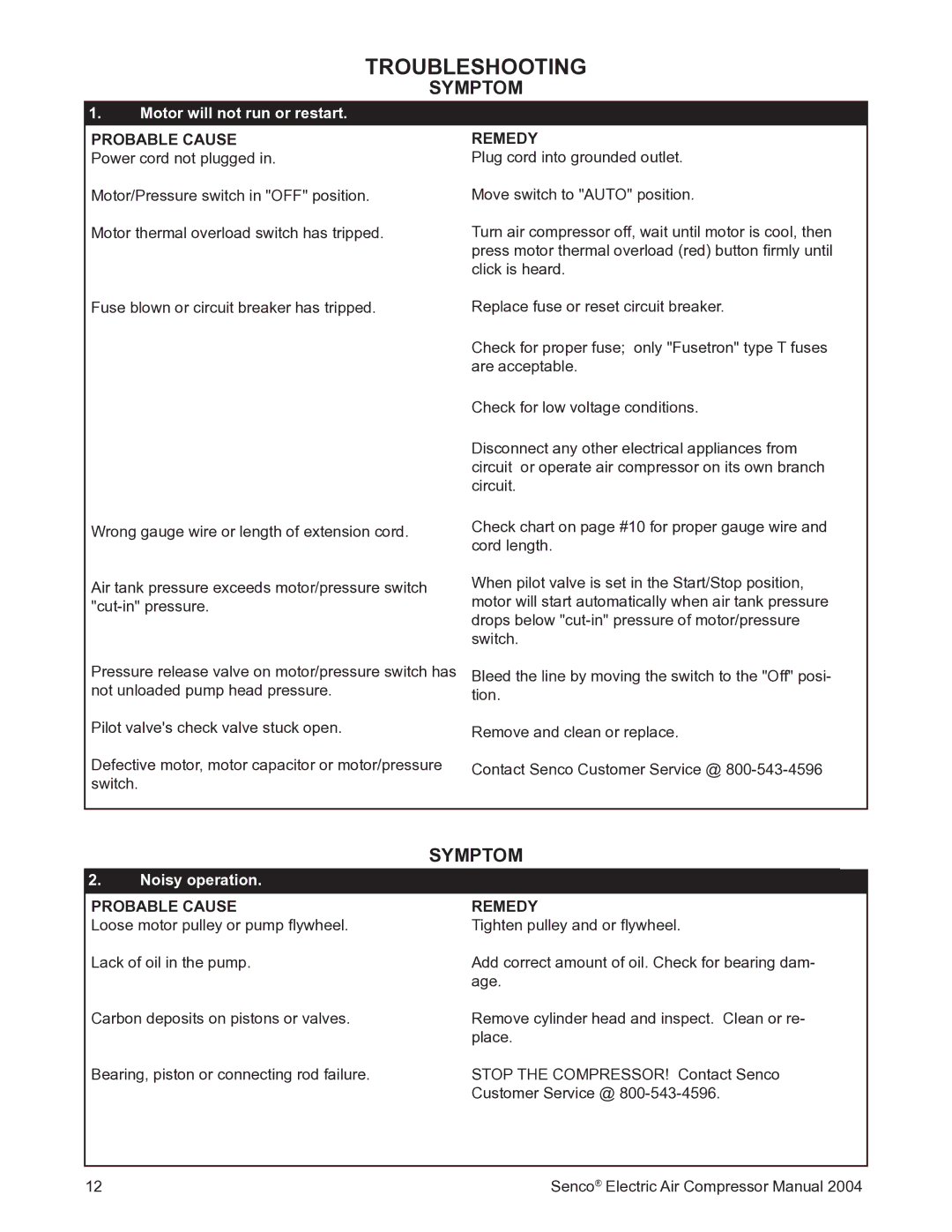
TROUBLESHOOTING
SYMPTOM
1. | Motor will not run or restart. |
|
PROBABLE CAUSE | REMEDY | |
Power cord not plugged in. | Plug cord into grounded outlet. | |
Motor/Pressure switch in "OFF" position. | Move switch to "AUTO" position. | |
Motor thermal overload switch has tripped. | Turn air compressor off, wait until motor is cool, then | |
|
| press motor thermal overload (red) button firmly until |
|
| click is heard. |
Fuse blown or circuit breaker has tripped.
Wrong gauge wire or length of extension cord.
Air tank pressure exceeds motor/pressure switch
Replace fuse or reset circuit breaker.
Check for proper fuse; only "Fusetron" type T fuses are acceptable.
Check for low voltage conditions.
Disconnect any other electrical appliances from circuit or operate air compressor on its own branch circuit.
Check chart on page #10 for proper gauge wire and cord length.
When pilot valve is set in the Start/Stop position, motor will start automatically when air tank pressure drops below
Pressure release valve on motor/pressure switch has not unloaded pump head pressure.
Pilot valve's check valve stuck open.
Defective motor, motor capacitor or motor/pressure switch.
Bleed the line by moving the switch to the "Off" posi- tion.
Remove and clean or replace.
Contact Senco Customer Service @
|
| SYMPTOM |
2. | Noisy operation. |
|
PROBABLE CAUSE | REMEDY | |
Loose motor pulley or pump flywheel. | Tighten pulley and or flywheel. | |
Lack of oil in the pump. | Add correct amount of oil. Check for bearing dam- | |
|
| age. |
Carbon deposits on pistons or valves. | Remove cylinder head and inspect. Clean or re- | |
|
| place. |
Bearing, piston or connecting rod failure. | STOP THE COMPRESSOR! Contact Senco | |
|
| Customer Service @ |
|
|
|
12 | Senco® Electric Air Compressor Manual 2004 |
